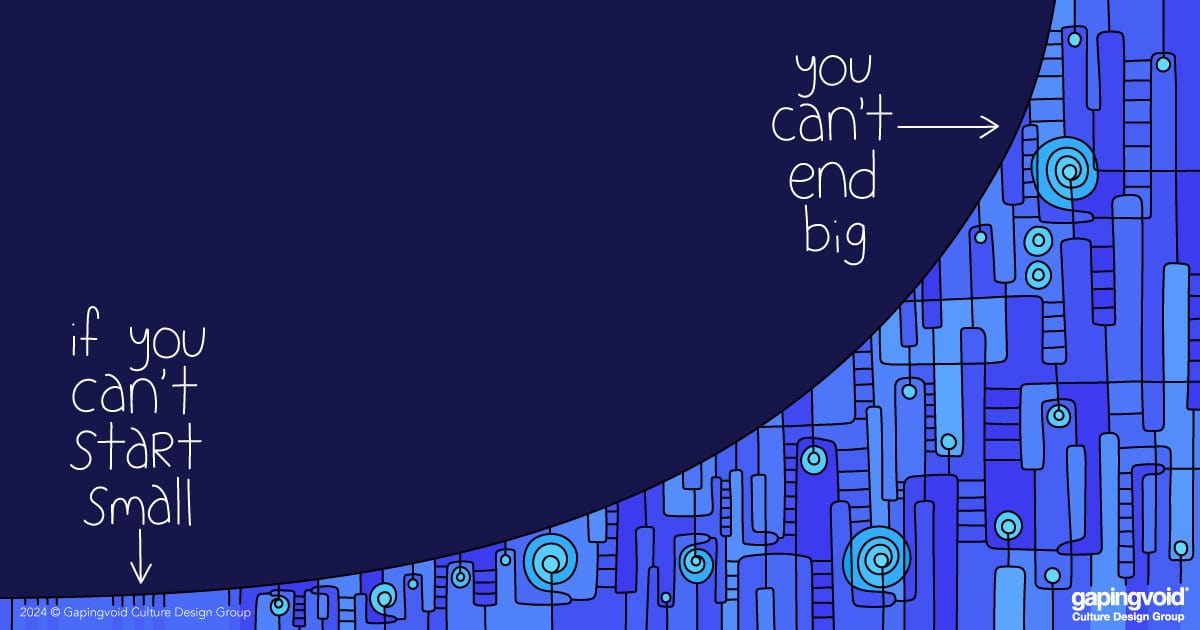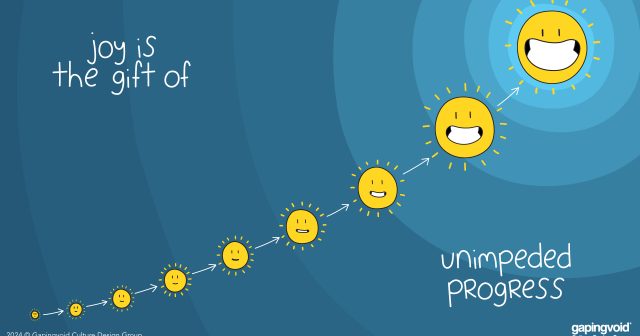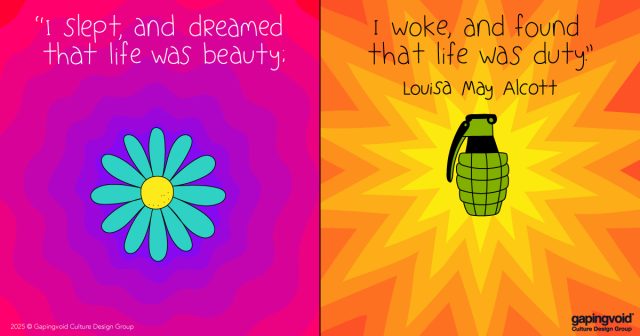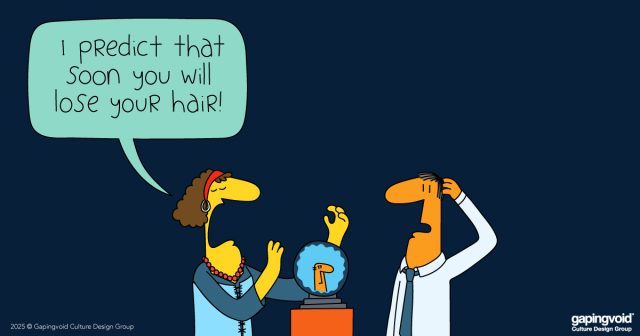
Over on Instagram, fellow culture nerd, Nick Smoot, made an interesting comment about organizational culture.
“Recently, I listened to a @nytimes podcast about companies forcing game nights and yoga sessions as poor attempts to rebuild connection and recapture corporate momentum in this new world of work we find ourselves in. What is being overlooked is that you can’t force #culture, but it can be unleashed and that happens by aligning deep human needs with corporate and macro economic trends. Humans need community, humans are curious, humans like to build things.”
This, in a nutshell, is why many big cultural initiatives fail. Because they try to do it by decree. By ticking boxes and by pushing buttons like white-coated scientists in a 1950’s Sci-Fi movie. By doing it top-down in a way that feels forced, and out of sync with what people actually want or need.
Whereas any teenager who spent any time in the indie rock music scene (or similar subculture) can tell you how it’s REALLY done.
You start off by playing small venues, knocking them off their feet, slowly building a following of enthusiastic fans, and getting people to spread the word, and then playing bigger venues next time. Wash, rinse, repeat. Then one day, you hit critical mass.
This is how you build community. Through deeply connecting with a few people and understanding what they want, and consistently delivering. Eventually word spreads. But that takes real work. It takes lots of appearing at sketchy clubs, a lot of days on the road, sleeping a lot of nights in the van.
The same idea works in business. You don’t make real substantive culture change by sending out an all-hands memo entitled “MY BIG, SUPERDUPER PLAN!!!” You start out with an idea, you share it with people, if people respond to it, you share it some more. They share it some more, letting it build momentum, one moment at a time. Then one day, we hit critical mass.
But most people don’t want to do that. We want to start at Madison Square Garden and get a standing ovation.
It’s like what Nick said: “Humans need community, humans are curious, humans like to build things.”
Creating the spaces that allow this to happen is how strong cultures get made.



